The DNREC Nonpoint Source Program has hosted and participated in a series of events, workshops, and presentations designed to promote and support improvements to the quality of Delaware’s waterways.
Nonpoint Source Program staff participated in the Recycled Cardboard Boat Regatta at the Nanticoke River Public Marina in Blades. The event was hosted by the Reclaim Our River Program, a partnership between DNREC, the Nanticoke Watershed Alliance, and the Abbott’s Mill Nature Center of the Delaware Nature Society.
The Nonpoint Source Program staffed an exhibit focusing on practices residents can use to help improve local water quality and captained a boat in the regatta, winning the award “Pride of the Fleet.”
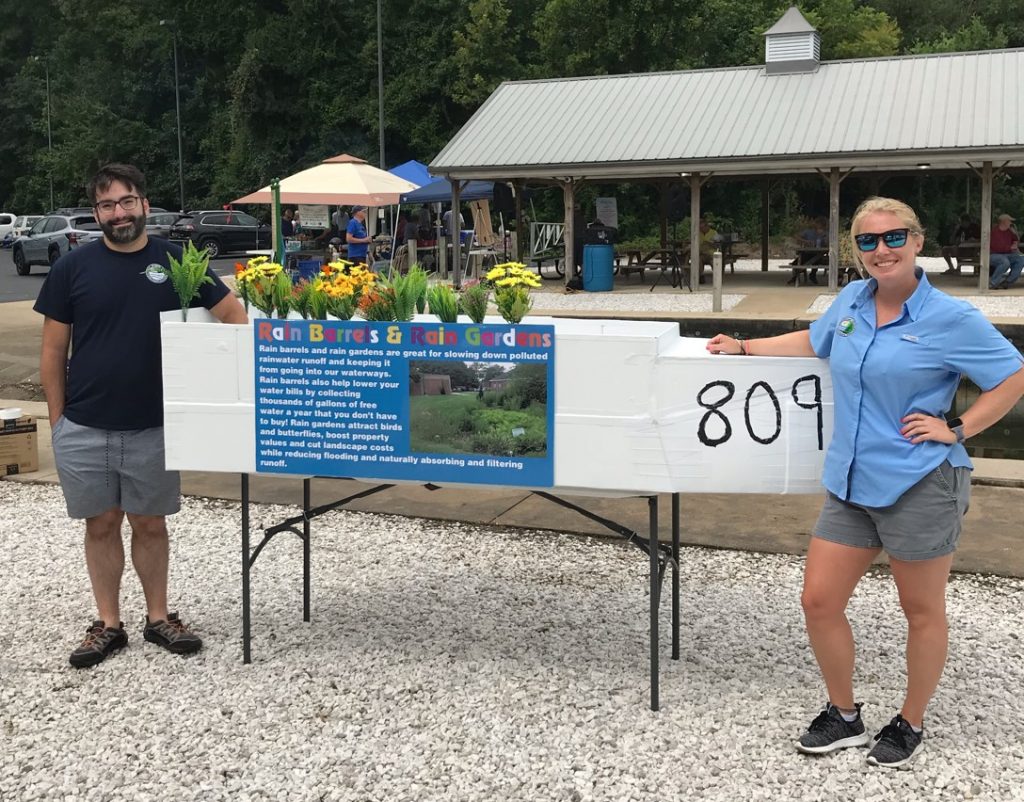
Nonpoint Source Program staff participated in the Greenwood Night Out event hosted by the Greenwood Police Department. The event aims to strengthen neighborhood spirit and a police-community partnership.
The DNREC Division of Watershed Stewardship had an exhibit focusing on practices residents can use to help improve local water quality.
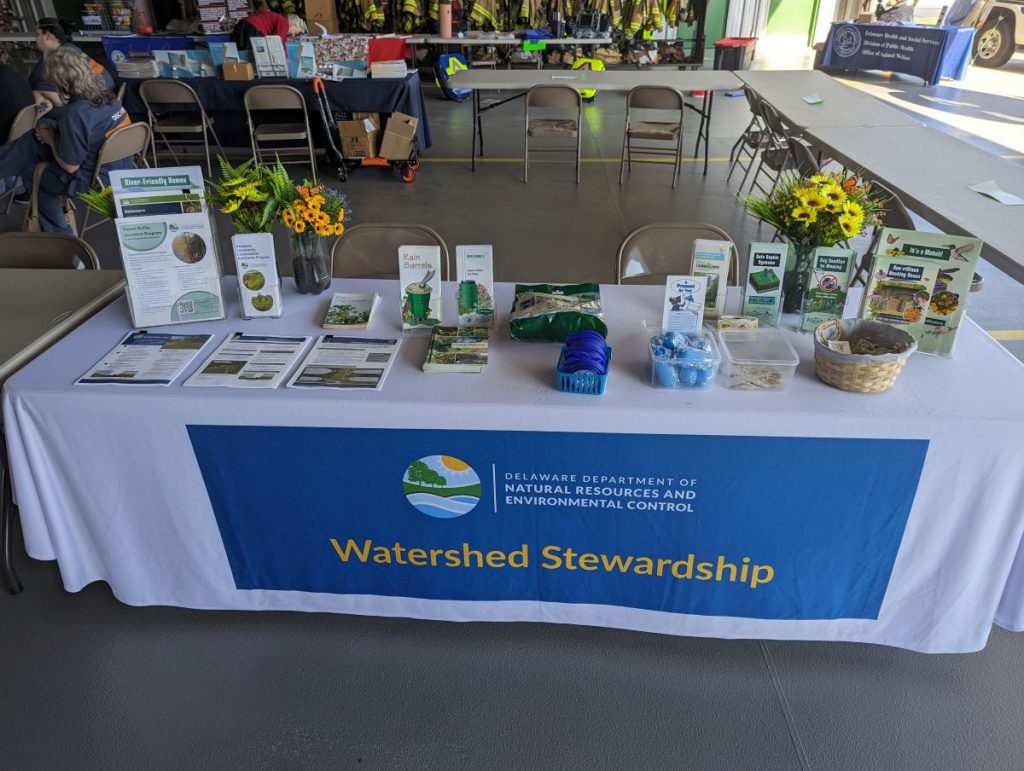
The Nonpoint Source Program staffed an exhibit at the Delaware State Fair highlighting DNREC’s freshwater mussel surveying work.
The exhibit encouraged attendees to learn about the benefits of mussel’s water filtering capabilities and experience a day in the life of an Environmental Scientist with a hands-on activity.
Participants saw, first-hand, the equipment used in mussel surveys. They had a chance to find, identify and document freshwater mussels.
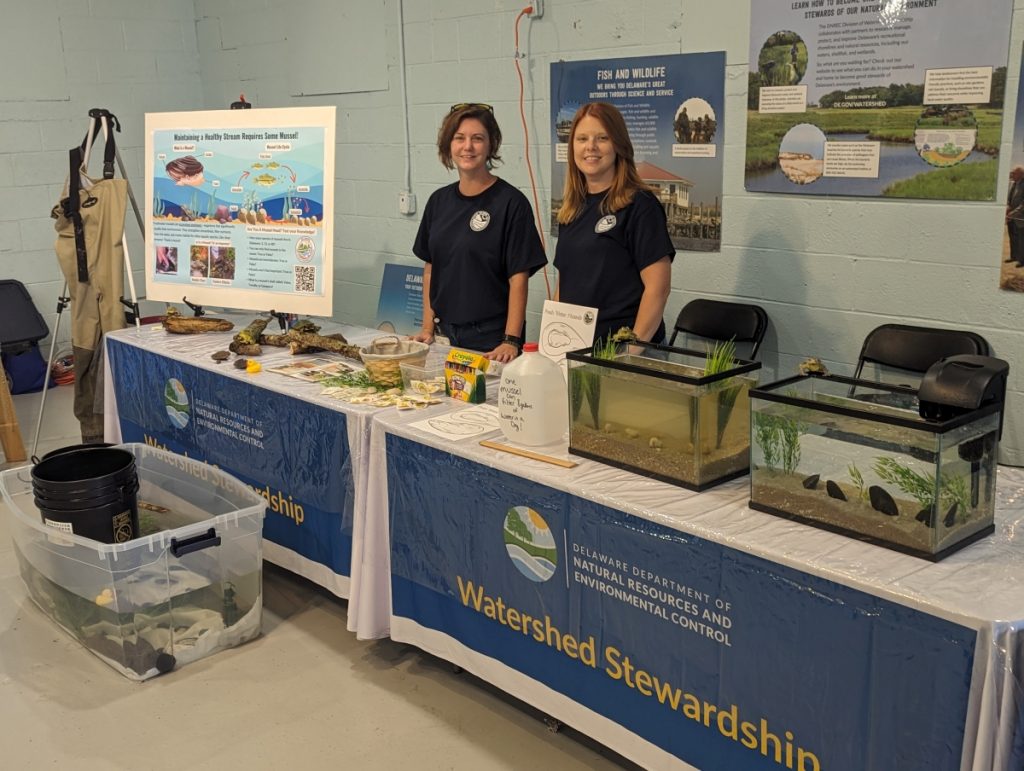
The Nonpoint Source Program staffed an exhibit at the annual fair which takes place at the Townsend Municipal Park, where attendees visit vendors and educational booths, and enjoy food, music, contests, and a parade.
The NPS exhibit consisted of materials and activities designed for residents to learn how to help reduce nutrient and sediment pollution. Over eighty attendees visited the exhibit.
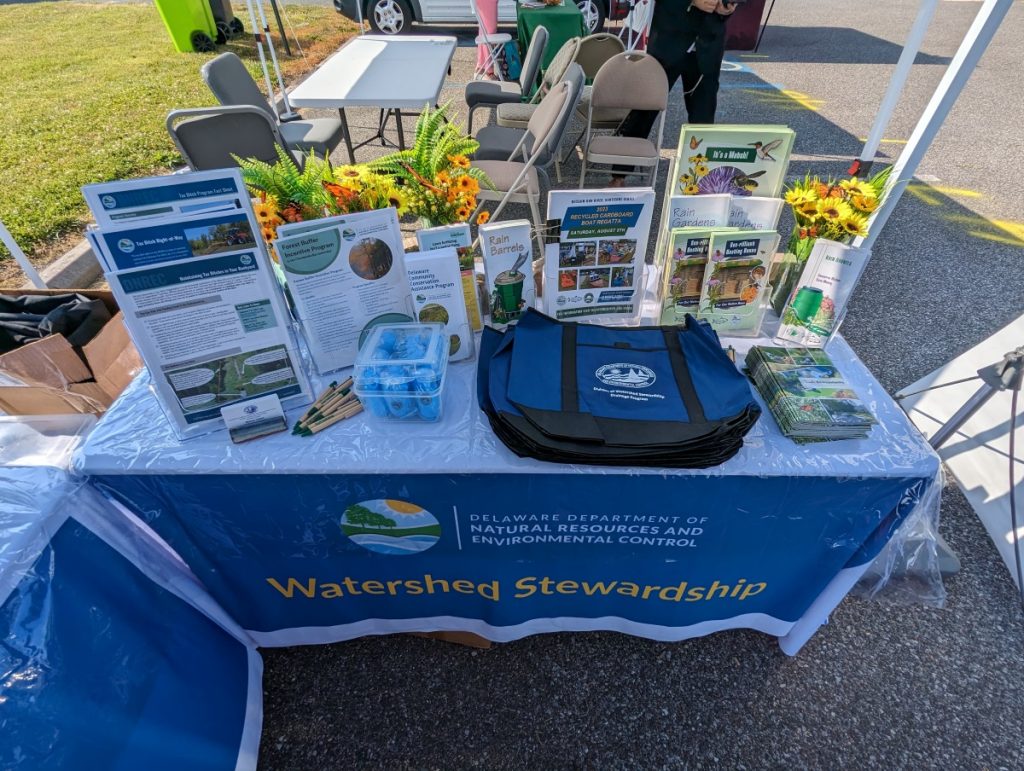
The Nonpoint Source Program staffed an exhibit at the event hosted by the Delaware River and Bay Authority in celebration of World Environment Day.
Attendees learned about environmental issues from government regulators, environmental experts, and company representatives on topics such as recycling, water quality, air quality, renewable energy, greener products, plastic pollution, sustainability, watersheds, endangered/protected species, electric vehicles, marine life and habitat, oil spill cleanup, remediation, ecology, and climate impacts.
The NPS exhibit focused on techniques residents can use to help reduce nonpoint source pollution. Approximately, 150 attendees visited the exhibit.
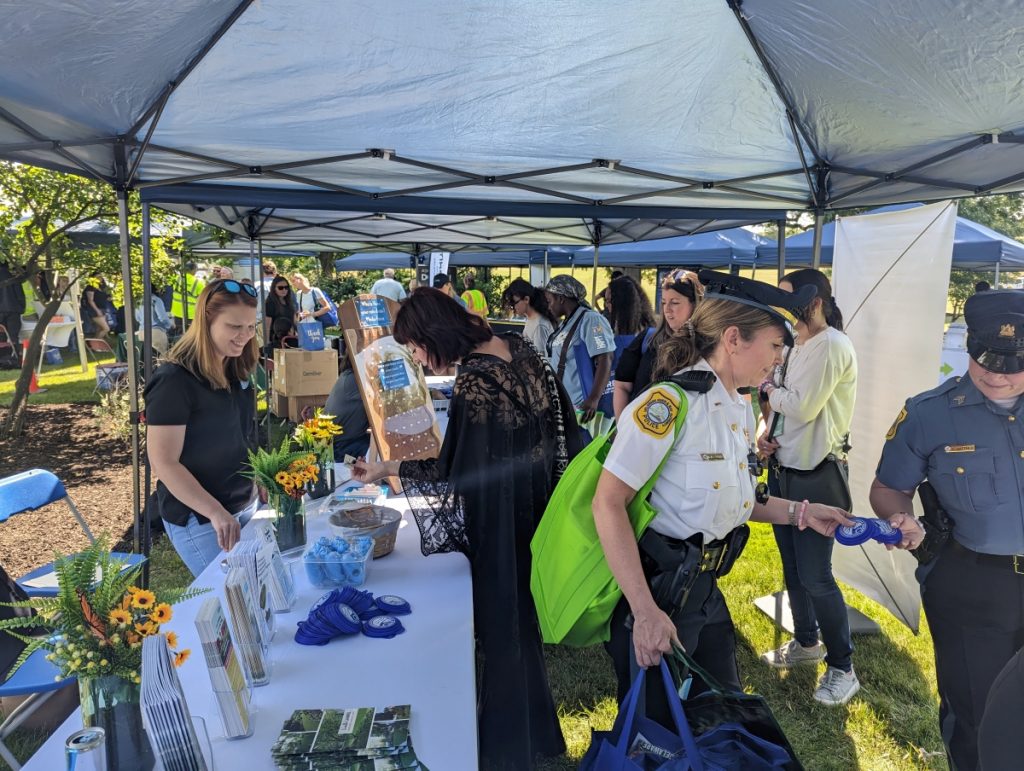
In conjunction with the Department of Natural Resources and Environmental Control (DNREC) and the Delaware Emergency Management Agency (DEMA) within the Department of Safety and Homeland Security, Governor John Carney proclaimed May 15 to 19, 2023 as Delaware Flood Awareness Week.
The goal was to better inform residents about flood risk, likelihood of flooding from extreme weather events brought on by climate change, preparation, and effects on water quality.
DNREC Nonpoint Source Program contributed to the promotion of the awareness week which included a social media campaign, flood awareness quiz, trainings, article in Outdoor Delaware Online Magazine, and DART bus wrap.
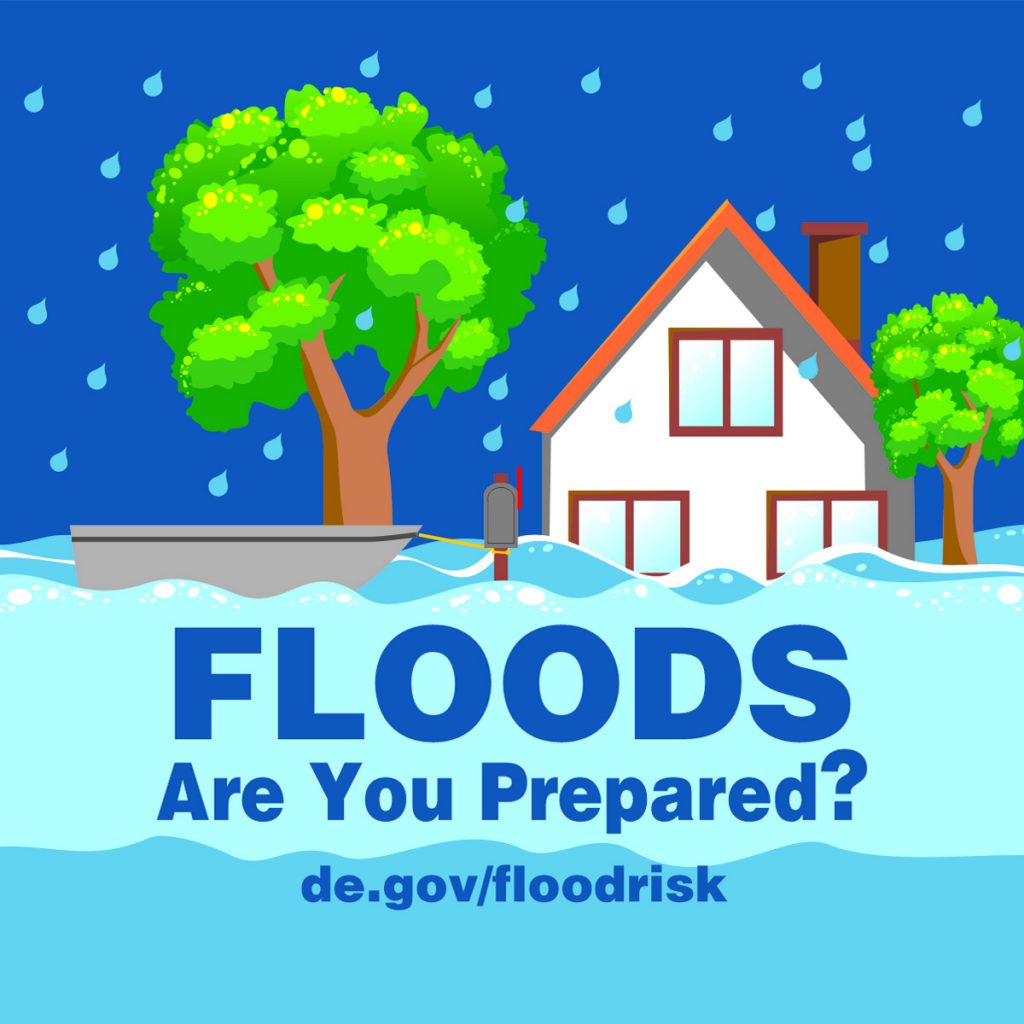
The Nonpoint Source Program staffed an exhibit at the DNREC and Center for Inland Bays, Water Family Fest and Native Plant Sale at the James Farm Ecological Preserve, in Ocean View.
The event highlights the work of each organization to improve Delaware’s wetlands, water, and recreational shorelines.
The exhibit included information on how reduce nonpoint source pollution with resources available to the public. Approximately 200 attendees visited the NPS exhibit.
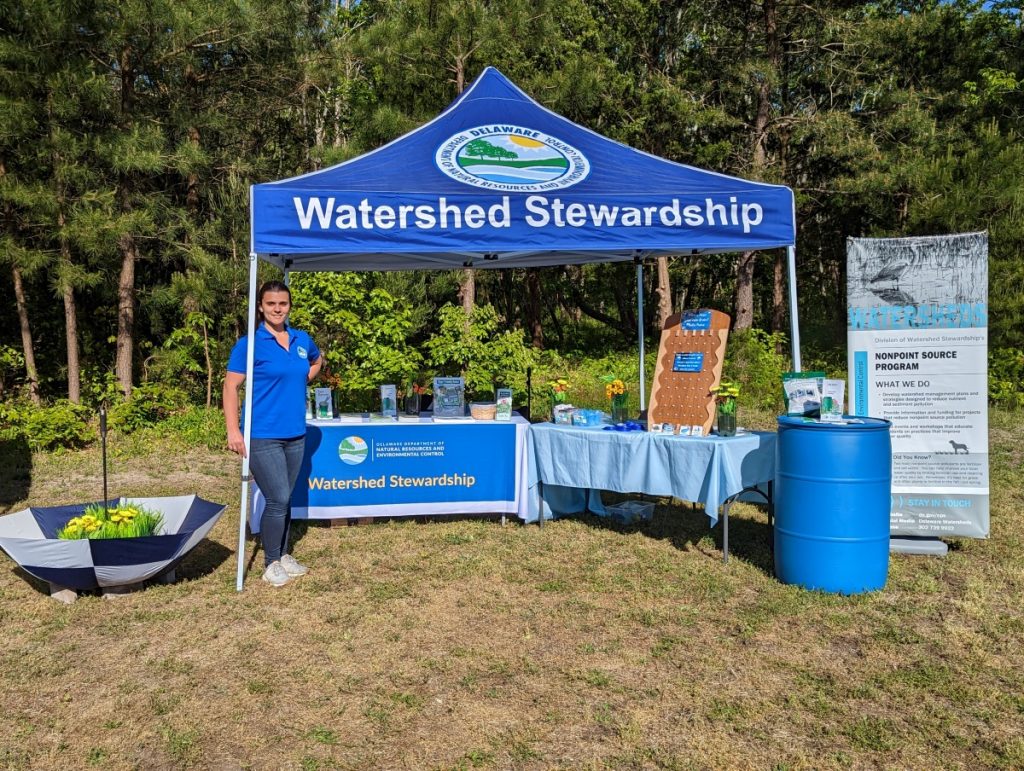
The Nonpoint Source Program staffed an exhibit at the Nanticoke Watershed Alliance, native plant sale and presentation, “A Place for Pollinators” at the Laurel Public Library.
Attendees learned more about pollinator-friendly options for a variety of landscapes. Native container gardening, designer ditches, bog gardens (and carnivorous plants), groundcovers and lawn replacements in the sun and the shade, were discussed.
The DNREC exhibit included information on practices that support pollinators and improve water quality. Over fifty people were in attendance.
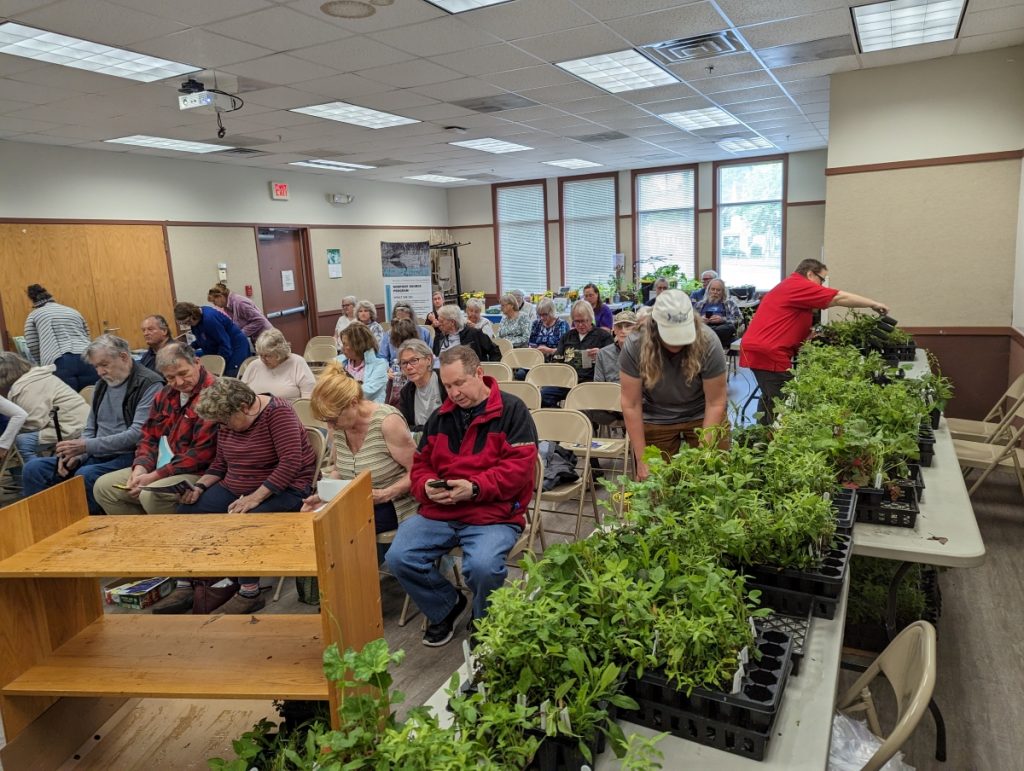
The Nonpoint Source Program provided information and resources while staffing an exhibit at the pollinator workshop “Helpful Tools for the Birds and Bees in 2023,” led by Carol Stephens, Delaware Master Naturalist.
Attendees learned about native shrubs, trees, and flowers most likely to attract birds, bees, and other pollinators while also helping to improve local water quality.
The presentation took place at the Laurel Public Library and was organized by the Reclaim Our River Program — a partnership between DNREC, Delaware Nature Society, and Nanticoke Watershed Alliance.
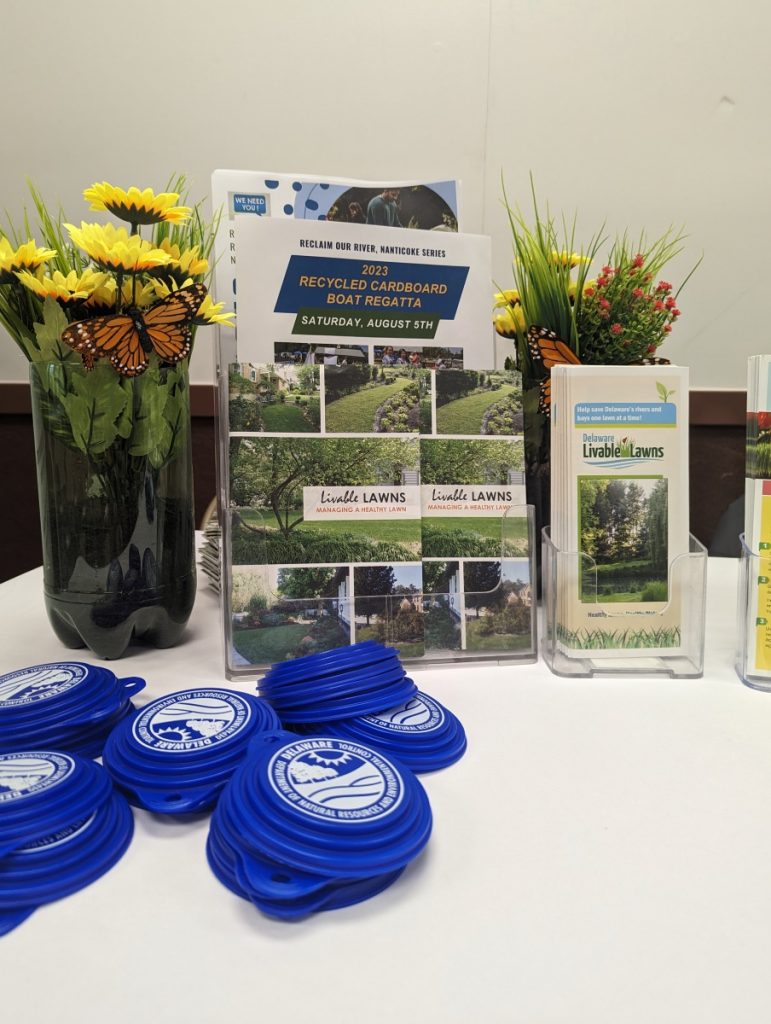
Volunteers are the backbone of Delaware’s shoreline stabilization. Every spring since 1990, except when pandemic conditions prevented it, dedicated volunteers have stabilized Delaware’s sand dunes by planting more than 5 million stems of Cape American beach grass along ocean and bay beaches.
Nonpoint Source Program staffed the annual event, hosted by the Division of Watershed Stewardship, this spring at the Delaware Seashore State Park.
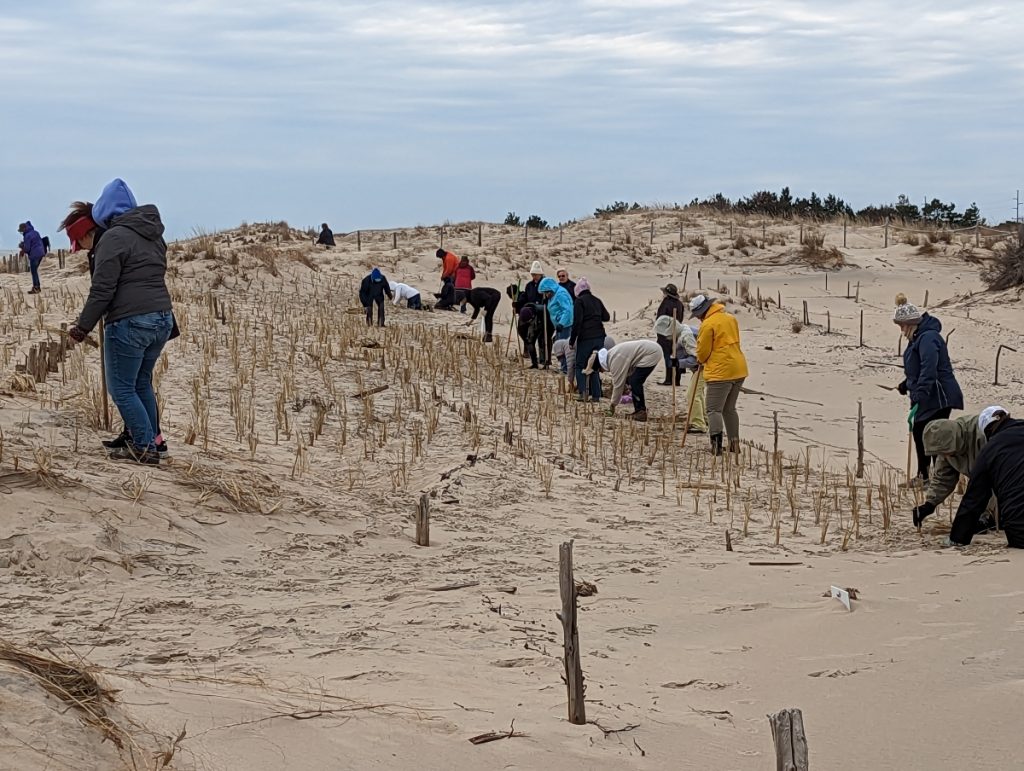
A presentation led by Carol Stephens, Delaware Master Naturalist, and staffed by the Nonpoint Source Program, highlighting easy practices to increase butterfly population while also improving the health of local waterways.
The workshop took place at Laurel Public Library as part of the Division of Watershed Stewardship, Reclaim Our River Program- a partnership with the Delaware Nature Society and the Nanticoke Watershed Alliance.
Free milkweed seeds for Monarch butterflies and additional resources were distributed to approximately 40 people in attendance.
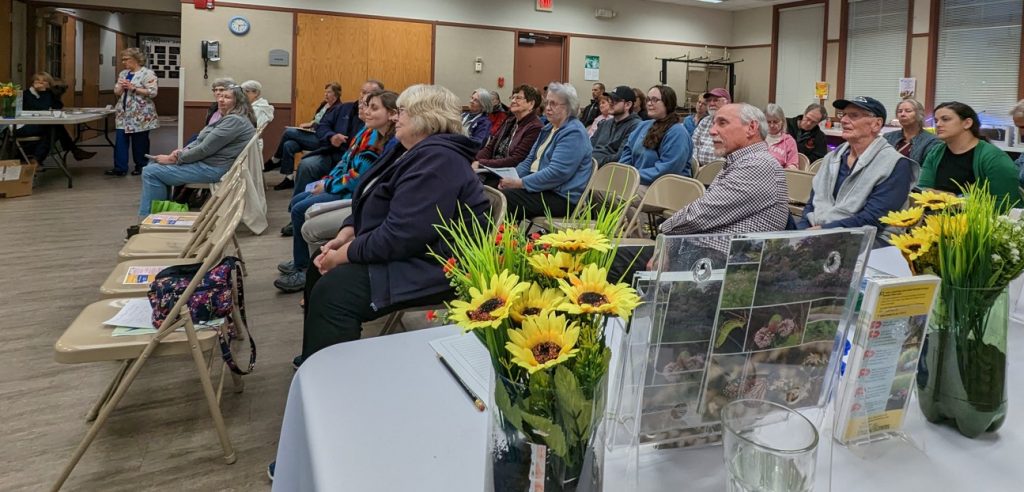
As part of the month-long celebration of Earth Day in April 2023, the Delaware Department of Natural Resources and Environmental Control, partners, and volunteers cleaned up an area around Concord Pond near Seaford.
The Division of Watershed Stewardship, Nonpoint Source Program in conjunction with the Reclaim Our River Program, a partnership between DNREC, the Delaware Nature Society, and the Nanticoke Watershed Alliance, hosted the cleanup.
Volunteers removed trash from the area and received guidance and resources on how to identify and remove invasive plant species from around the pond.
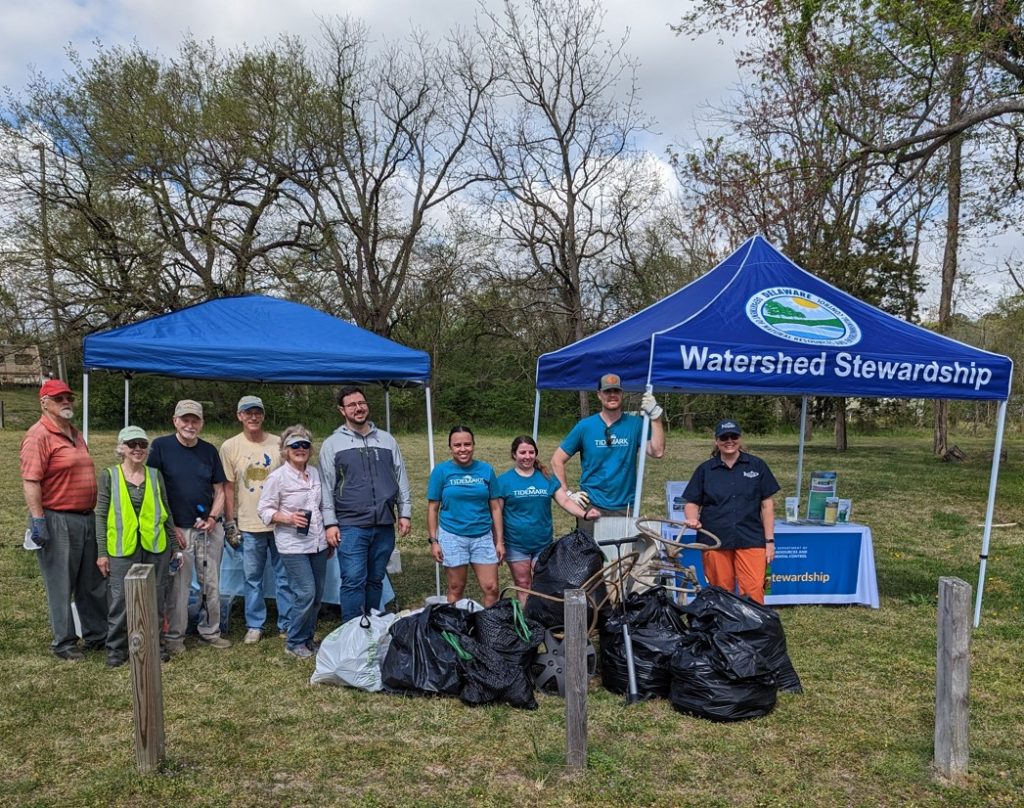
Related Topics: chesapeake, events, nonpoint source, water quality, watershed, watershed stewardship